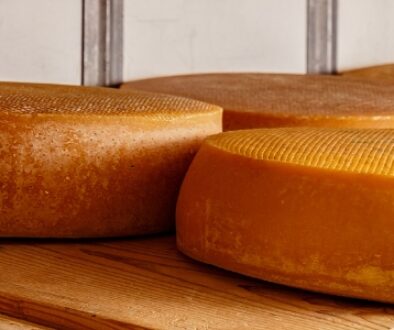The Importance of Cheese Technology Education at All Levels
The best way to succeed in any industry is to fully understand your product. Cheese is no different. In comparison to other segments of the food industry, cheese is a difficult product to produce, combining highly evolved science, including microbiology, chemistry, enzymology and biochemistry, with skilled “art”. To be successful, the microbiology aspect includes having a solid understanding of beneficial starter culture bacteria as well as non-beneficial spoilage type bacteria, yeast, molds and disease-causing pathogenic bacteria and viruses (bacteriophage).
Starter Technology
Starter technology must be well taught to cheesemakers and starter makers, since it is the heart of cheesemaking. Understanding of starter technology is the key to improving the quality and safety of cheese.
Unfortunately, due to the introduction of direct sets, many plants have lost the control of working with bulk starters and culture rotations. In the last decade, there have been devastating recalls in the cheese industry due to pathogens. Perhaps we need to revamp existing starter technology. In my opinion, and in the opinion of other leading industry experts, bulk starters greatly improve yield, quality and safety of the cheese. Cheese plants should get back into the practice of making their own fresh bulk starters to have better control on their cheese production.
Of course, equally important is knowledge of yeast and molds and their control. All plant employees must be taught the simple basics of microorganisms and the ways and means to control them, which is not at all hard to do.
Chemistry is another critical aspect of cheesemaking. It involves the understanding of time, temperature and pH factors and their biochemical effects on raw milk storage, pasteurization, rennet coagulation and starter bacterial acid production at various stages of cheese manufacture, controlling moisture, fat, and salt concentrations in the finished cheese. Production workers must have knowledge of these crucial aspects of cheesemaking. In addition, plant operators must understand the science behind the effect of storage on raw milk, specifically on the loss of casein and fat due to psychrotrophs.
In addition, the science of enzymes used in the cheese production must be understood. This involves the rennet enzymes (to assist coagulation), flavor enzymes such as lipases (to enhance flavor), debittering enzymes such as amino peptidases, and finally starter bacterial enzymes. Rennet enzymes are of both animal and fungal origin, in addition to genetically-modified bacterial origin. One has to understand the proteolytic patterns and thermal stabilities of the coagulating enzymes (microbial vs. animal vs. genetically modified), not only to optimize their usage and to improve the quality of cheese, but also to significantly improve the quality of subsequent whey products.
The biochemical aspects of aging cheese also must not be ignored, and it is different in every variety of cheese. The understanding of the simple biochemical aspects of aging process, which relies heavily on starter cultures, enzymes, and the secondary flora is vital to the success of the finished cheese product, since it dictates the keeping quality of cheese.
The next major aspect of cheesemaking is “art.” Lately this has been greatly ignored due to mechanization. When cheesemakers are involved in the art of cheesemaking, they must understand the basic science behind each step of the manufacture, rather than simply pushing the buttons. This helps them to appreciate and understand what they should do to improve the product.
Cheese plant management — at supervisory and executive levels — need to pay some attention to the technology aspect of cheesemaking rather than concentrating only on the output of product in a given day.
They must be able to determine the theoretical yields (using Van Slyke formula) to compare to actual yields on a daily basis to judge the efficiency of the plant. In addition, they must be taught to understand and interpret the Code of Federal Regulations pertaining to cheese thoroughly.
Sales and marketing staff also should have basic technical and scientific knowledge. If they do, they can convince and teach customers and purchasing agents regarding the feasibility or non-feasibility of producing and supplying requested products with certain customer specifications.
In addition, the sanitation crew, who make up a vital human aspect of cheesemaking, must understand the basic theories behind the cleaning chemicals and sanitizers they use and how to calculate their concentrations to do their job properly and effectively. Both the management and the employees working in the cheese packaging, shredding and dicing areas must have basic knowledge on certain aspects of microbiology and sanitation to safeguard the finished product.
Because of the lack of sufficient technical knowledge at various levels and lack of proper communications (telephone), the fear of the unknown has been creeping up in the cheese industry. The only way to eliminate fear and unnecessary stress is by educating the people involved at all levels and aspects of cheese production (including marketing and purchasing) through simplified technology training classes by qualified technical trainers who have immense practical experience.
Source: Cheese Market News




